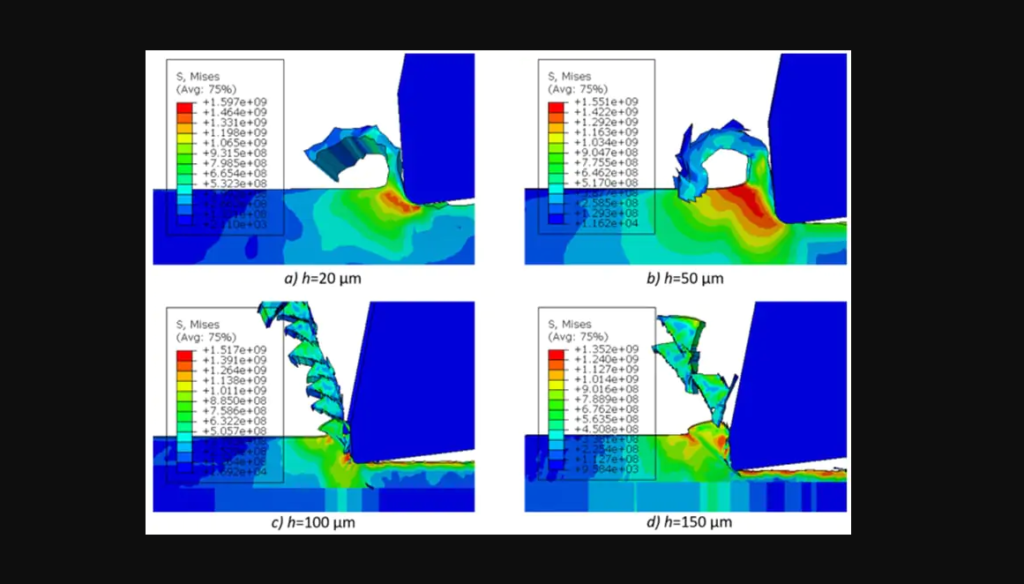Simulation design services have become essential in modern engineering and technology. They allow us to visualize, analyze, and refine systems and processes before they become reality. From cars and airplanes to healthcare devices and manufacturing, these services are helping industries save time, cut costs, and boost performance. eTAZ systems article will explain why simulation design services are so important, the methods involved, and the benefits they offer. We’ll also cover some common questions with a detailed FAQ section.
What Are Simulation Design Services?
Simulation design services involve creating virtual models of systems, processes, or products. These models help predict how things will behave under different conditions. Engineers and designers use advanced software to create these simulations, which can range from simple representations to complex systems with many interacting parts.
Applications of Simulation Design

Simulation design can be used in many ways, including:
- Mechanical Simulations: Studying stress, strain, heat, and fluid flow in mechanical components.
- Electrical Simulations: Modeling circuits, electromagnetic fields, and signals.
- Software Simulations: Testing software behavior, algorithms, and user interfaces.
- Process Simulations: Optimizing manufacturing processes, chemical reactions, and logistics.
- System Simulations: Integrating mechanical, electrical, and software systems to see how they work together.
Key Methods in Simulation Design
Some of the main techniques used in simulation design include:
- Finite Element Analysis (FEA): Predicts how products react to forces, vibration, heat, and fluid flow.
- Computational Fluid Dynamics (CFD): Models fluid flow and heat transfer.
- Multiphysics Simulation: Combines different physical processes like thermal and electromagnetic in one model.
- Discrete Event Simulation: Models systems as sequences of events over time.
- Monte Carlo Simulation: Uses statistics to predict the probability of different outcomes.
The Benefits of Simulation Design Services
Cost Efficiency: By identifying problems and optimizing designs early, simulation design services reduce the need for expensive prototypes and cut down on material waste.
Time Savings: Simulations provide quick insights, helping companies make decisions faster and speed up development timelines.
Risk Mitigation: Engineers can test designs in extreme conditions digitally, identifying potential failures before they happen in real life.
Enhanced Innovation: Simulations allow for experimentation with new ideas and designs without the limitations of physical testing.
Improved Quality and Performance: By fine-tuning designs through simulation, companies can create better-performing products that meet specific requirements.
Environmental Impact: Reducing the need for physical prototypes through simulation helps minimize resource use and waste, making the process more sustainable.
Where Are Simulation Design Services Used?
- Automotive Industry: To test vehicle dynamics, safety features, and fuel efficiency.
- Aerospace Industry: For modeling aircraft behavior, propulsion systems, and the impact of extreme environments.
- Healthcare and Medical Devices: In developing implants, prosthetics, and diagnostic equipment.
- Manufacturing and Process Industries: For optimizing production lines, reducing downtime, and improving efficiency.
- Renewable Energy: To design and place wind turbines, solar panels, and other systems.
- Electronics and Semiconductor Industry: For optimizing circuits, microchips, and electronic systems.
FAQs on Simulation Design Services
1. What software is used for simulation design?
Common tools include ANSYS, SolidWorks, MATLAB/Simulink, COMSOL Multiphysics, AutoCAD, and Siemens NX.
2. How accurate are simulations?
Accuracy depends on the quality of input data and the model’s complexity. While simulations might not perfectly match real-world conditions, they can be highly accurate with the right data and methods.
3. Can simulations be used for all products and processes?
Simulations are versatile, but highly complex or unpredictable systems might still require some physical testing.
4. How do simulations contribute to sustainability?
They reduce the need for physical prototypes, cutting down on material use, energy consumption, and waste.
5. How do I start working with a simulation design service provider?
The process usually involves an initial consultation, followed by a proposal, model development, simulation, analysis, and a final report.
6. How do simulations speed up product development?
Simulations help identify and fix issues early in the design process, reducing the need for multiple prototypes and speeding up time to market.
7. Which industries benefit the most from simulations?
Industries like automotive, aerospace, healthcare, and manufacturing, where precision and safety are crucial, gain the most from simulation design services.
8. Are simulations useful for training?
Yes, especially in fields like aviation, healthcare, and military, where they offer a risk-free way to practice skills.
9. How do simulations fit into other engineering processes?
They integrate well with CAD, CAE, and PLM processes, ensuring a unified approach to product development.
10. What are the future trends in simulation design?
Expect more AI-driven simulations, real-time simulations, and greater use of virtual and augmented reality, making simulations even more powerful.
Conclusion
Simulation design services are changing how products and processes are developed. They provide a virtual space where ideas can be tested and refined, leading to faster innovation, reduced costs, and improved quality. As technology advances, simulations will play an even bigger role in engineering and product development, offering powerful tools to bring concepts to life. Whether you’re in automotive, aerospace, healthcare, or another industry, simulation design services can give you the insights and confidence you need to succeed.
contact us
For greater statistics about our Simulation Design Services about your unique assignment desires, please touch us:
Office Address: Office # 9, First floor, Business Incubation Center SSC, University of Engineering and Technology, Lahore.
Phone: +923234767694
Email: info@etazsystems.Com
At eTAZ Systems, we are devoted to turning in innovative and reliable Simulation Design Services that pressure the achievement of our customers’ projects. Reach out to us these days to look how we are able to assist carry your electronic designs to lifestyles.
